Summer 2021

By Alan Schultz
Summer 2021 Newsletter
In February 2021, Pedals for Progress celebrated thirty years of service collecting bicycles and sewing machines to be donated to developing countries around the world. Among the 160,000 bicycles and 5,000 sewing machines sent to 45 countries, Pedals for Progress has been able to facilitate the growth and development of countless communities, families, and individuals. These achievements are not met by happenstance. There are several moving parts in the machine that are required for the “progress” in Pedals for Progress to take hold.
The partners we work with overseas are among the most important components of our entire operation. Without the many groups we work with, distributing bicycles and sewing machines would be nearly impossible. Development of our cause and the further distribution of bicycles is reliant on building new relationships with communities unreached by Pedals for Progress and Sewing Peace.
As a crucial part of our development, Pedals for Progress is proud to announce a new partnership with the Rwanda Wildlife Conservation Association. We are very happy to be working with the RWCA, as they will be a relationship necessary to put our used bikes to good use in a region of the world that is challenging to access and distribute to.
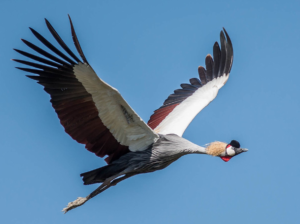 Oliver Nsengimana is the founder and lead conservationist in charge of the RWCA. Oliver and his team are dedicated to the conservation of Rwanda’s vast wildlife. The association’s flagship project is protecting the endangered species of grey crowned cranes, a species of crane that is on the brink of extinction. The grey crowned crane is often poached and captured by the nation’s wealthy classes as the crane is seen as a symbol of wealth and prosperity. For years, the gray crowned crane has been struggling to survive, as its natural population is dwindling. However, Oliver and his team have made massive developments through their program’s initiatives, which include rehabilitating illegally captured cranes, educating the public, and collecting data to track the reestablished growth of the gray crowned crane. The RWCA aims to continue their conservation of Rwanda’s rich wildlife focusing on other threatened species in the country.
Oliver Nsengimana is the founder and lead conservationist in charge of the RWCA. Oliver and his team are dedicated to the conservation of Rwanda’s vast wildlife. The association’s flagship project is protecting the endangered species of grey crowned cranes, a species of crane that is on the brink of extinction. The grey crowned crane is often poached and captured by the nation’s wealthy classes as the crane is seen as a symbol of wealth and prosperity. For years, the gray crowned crane has been struggling to survive, as its natural population is dwindling. However, Oliver and his team have made massive developments through their program’s initiatives, which include rehabilitating illegally captured cranes, educating the public, and collecting data to track the reestablished growth of the gray crowned crane. The RWCA aims to continue their conservation of Rwanda’s rich wildlife focusing on other threatened species in the country.
Paying attention to their local environment creates self-sustaining environmental procedures that have larger implications for building eco-tourism opportunities in the region. Building a strong team of conservationists who understand the larger implications of maintaining a healthy environment will lead to a community that is well equipped for maintaining a stronger, eco-friendly local economy. This new partnership is made merrier by our common connection with the RWCA. Oliver Nsengimana was named a Rolex Laureate in 2014 to honor and promote the work he and his team have done rehabilitating and reintroducing gray cranes back to the wild. In 2000, Pedals for Progress’s Dave Schweidenback was also named a Rolex Laureate, marking a pivotal moment in the company’s thirty-year history. Rolex is responsible for this new connection between the RWCA and P4P.
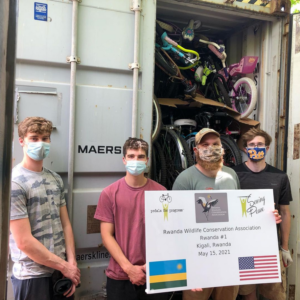 Together, the fellow alumni of the program will now begin to break new ground as partners and continue environmentally conscious acts of service to the world. In fact, we are proud to announce that on May 15th we sent our very first container to Rwanda: 503 bikes and 43 sewing machines. In six months a second container of goods will be on its way to Rwanda to further cement our partnership. The bicycles will be a great help to the RWCA and the people in the surrounding communities. Bicycles will go directly to the RWCA to help their conservationists cover more ground to collect more data necessary for the development of their many environmental efforts. The RWCA is also involved in activities with local schools and youth clubs, community campaigns, and rangers that will receive the bikes to generate their own self-sufficient enterprises made possible by the bicycles and sewing machines.
Together, the fellow alumni of the program will now begin to break new ground as partners and continue environmentally conscious acts of service to the world. In fact, we are proud to announce that on May 15th we sent our very first container to Rwanda: 503 bikes and 43 sewing machines. In six months a second container of goods will be on its way to Rwanda to further cement our partnership. The bicycles will be a great help to the RWCA and the people in the surrounding communities. Bicycles will go directly to the RWCA to help their conservationists cover more ground to collect more data necessary for the development of their many environmental efforts. The RWCA is also involved in activities with local schools and youth clubs, community campaigns, and rangers that will receive the bikes to generate their own self-sufficient enterprises made possible by the bicycles and sewing machines.
Our new partnership with the RWCA, following our 30-year celebration of operation, shows the continued growth of Pedals for Progress. We are happy to be able to continue to create new relationships with organizations that have like-minded goals of creating environmentally sound solutions to develop the growth of communities in need.
By Alan Schultz
Summer 2021 Newsletter
Pedals for Progress has received reports from The Norbert and Friends Missions, our partner in Tanzania. Their second container arrived on February 2, 2020, and was slightly delayed due to unexpected costs and delays with the Tanzania Revenue Authority. The container finally made its long-awaited arrival at the NFM headquarters and was immediately unloaded.
The Norbert and Friends Missions experience high demand for P4P bikes and sewing machines due to their reputation for quality. Word is being spread about the benefits of bikes and sewing machines. Norbert and Friends Missions are determined, and are showing, that they can continue to create a continuous, autonomous, and independent revolving fund. This has always been the primary goal when setting up new relationships with partners overseas and the Norbert and Friends Missions have successfully laid the foundation to do so. It is up to us on the domestic front to continue supplying their great demand. It has been a true inspiration to see the strides they are making.
The bicycles provided by P4P have garnered fame as they are reliable tools used by the community’s healthcare workers and farmers. Norbert and Friends Missions are reporting that farmers are increasing their production, as they can haul more product over greater distances. Healthcare is more accessible to community members, and on the inverse healthcare workers can access the community easier. School children are also making noticeable changes in attendance and their grades as they can get to school faster, and as a result, are less tired, allowing them to better focus on their schoolwork.
The Norbert and Friends Missions tell us the sewing machines and bicycles are also greatly impacting the lives of women and girls in their community. The bicycles are allowing women and girls to have reliable transportation that is safer for them than walking. Women and girls face disproportionate challenges getting transportation. However, bicycles provided by The Norbert and Friends Missions have been evening out this inequality. The sewing machines being provided also give women opportunities to create their own small business. The women doing so have been a great source of inspiration for younger generations. The women who are proving to be successful are also very motivated to pass on their skills by teaching younger generations and holding classes for the inexperienced. The sewing machines provide a regular income for people that have had no source whatsoever.
Please read these personal testimonials from The Norbert and Friends Missions. It is amazing to hear how motivated the organization is in changing their community. They wish to continue the spread of their work and have hopes of reaching every corner of their country to distribute the much-needed aid our bicycles and sewing machines provide. They certainly have this within their capacity, and we are very excited to continue to work with them to make this goal a reality.
Success Stories from Tanzania
Here are some stories from the community of The Norbert and Friends Missions, our partner in Tanzania. Norbert and Friends are located in Arusha, in northern Tanzania, not far from Mount Kilimanjaro. A couple of these stories are from the nearby Hai District.
Nzega and the P4P/SP Women’s Group
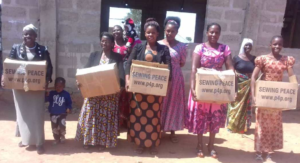 I take this opportunity to express my sincere gratitude for getting this sewing machine. Before I got it I couldn’t even buy my own clothes, but after getting this sewing machine I can now afford my own house. I have hired people to help me sell the clothes I make. Life has become easier. Now I wish to start a small college to teach my fellow girls to build their economy. Thank you very much P4P through The Norbert and Friends Missions.
I take this opportunity to express my sincere gratitude for getting this sewing machine. Before I got it I couldn’t even buy my own clothes, but after getting this sewing machine I can now afford my own house. I have hired people to help me sell the clothes I make. Life has become easier. Now I wish to start a small college to teach my fellow girls to build their economy. Thank you very much P4P through The Norbert and Friends Missions.
Our group would like to take this opportunity to express our sincere gratitude to The Norbert and Friends Missions. Now we are meeting in unity but lacking resources; we are praying for our donors to help us with more sewing machines.
Mariam Arbetus
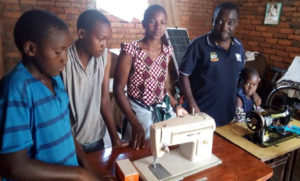 This family thanks the Organization for providing us with a sewing machine. We have now been able to talk about another sewing machine. We hope that my children also learn this skill as they have seen great benefits. Since we received the sewing machine it has opened the doors for my business, as I henceforth will look more professional. The Norbert and Friends Missions are the Hope for the hopeless, the Peace Makers and friends to the poor. May God help them continue reaching the unreached, and helping the left for themselves. God bless you very much.
This family thanks the Organization for providing us with a sewing machine. We have now been able to talk about another sewing machine. We hope that my children also learn this skill as they have seen great benefits. Since we received the sewing machine it has opened the doors for my business, as I henceforth will look more professional. The Norbert and Friends Missions are the Hope for the hopeless, the Peace Makers and friends to the poor. May God help them continue reaching the unreached, and helping the left for themselves. God bless you very much.
Sewing Peace Community Impact in Hai District
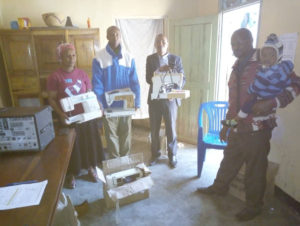 We don’t have good words to say because when we started this project we were two but now we have 12 of us. There is one who was wanting to run away from his family but after getting a sewing machine with this Group he found life has become much easier and he has managed a family services business and his children are now going to school. We just need to add a sewing machine. Thank you for helping us.
We don’t have good words to say because when we started this project we were two but now we have 12 of us. There is one who was wanting to run away from his family but after getting a sewing machine with this Group he found life has become much easier and he has managed a family services business and his children are now going to school. We just need to add a sewing machine. Thank you for helping us.
Manka
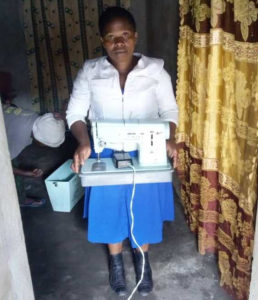 From the Hai District: Manka does not believe her eyes. “I was wondering how I could lead my life without any income.” Now she has seen so much benefit from managing her own sewing project and making her own money that she is thinking of opening a tailoring shop and hiring people who will help her manage her sewing business. “Many girls are suffering from poverty and lack of income even when they have professional skills. And yet many others would like to acquire tailoring skills but cannot afford it! I promise to reciprocate to the NFM by helping any women or girls who come my way for the sake of poverty alleviation. I know what it means living without income and how it hurts! May God Bless The Norbert and Friends Missions and their partners!”
From the Hai District: Manka does not believe her eyes. “I was wondering how I could lead my life without any income.” Now she has seen so much benefit from managing her own sewing project and making her own money that she is thinking of opening a tailoring shop and hiring people who will help her manage her sewing business. “Many girls are suffering from poverty and lack of income even when they have professional skills. And yet many others would like to acquire tailoring skills but cannot afford it! I promise to reciprocate to the NFM by helping any women or girls who come my way for the sake of poverty alleviation. I know what it means living without income and how it hurts! May God Bless The Norbert and Friends Missions and their partners!”
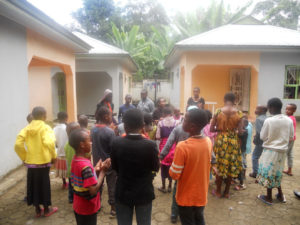 Demand for Bikes
Demand for Bikes
These you see here are students who have been in our office to ask for a bike after seeing their classmates with bikes do so well with attendance and exams. Students without bikes often walk a very long distance to school.
Coming Next Up
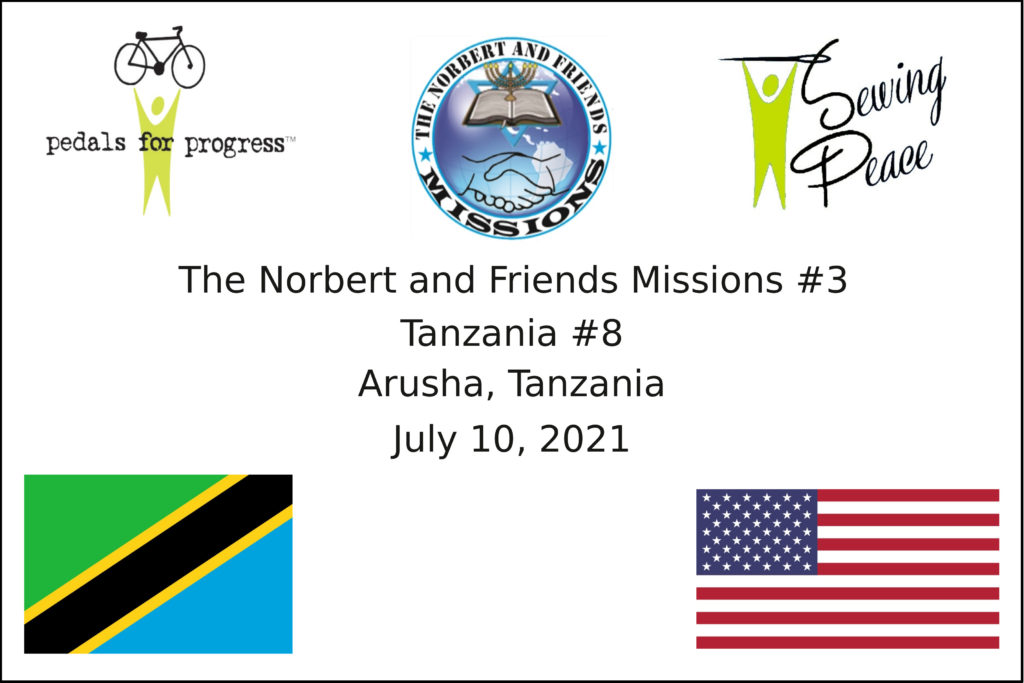
From the beginning of the pandemic I was pretty sure our goal post was going to be April 2021. Of course we collected nothing in spring 2020 but did moderately well in the fall. We really expected a great spring 2021 season. Unfortunately most of our spring collectors are with churches and public schools, most of which were closed because of the pandemic. So rather than 30 spring collections, we had only seven. That moved our goal post to September 2021. In late August or September we will really be able to open up and collect a lot of bikes.
A funny thing happened last year. Our production totals in fiscal 2020 were down by 35% compared to 2019. But then last fall’s collections fell into fiscal 2021 and although we had very few collections in the spring of 2021, the Faith Lutheran Church of New Providence, New Jersey, collected 402 bicycles and two sewing machines in one day!
We had hoped to ship a minimum of three containers of bicycles and sewing machines in spring 2021 on the presumption of 25+ collections. The rollout of the vaccines has been a wonderful thing for everyone, but did not quite get here in time to save our spring season and its tiny total of 7 collections. That said, some days it just rains bikes. So we are in fact shipping a third container, Tanzania #8, on July 10th. In May, we shipped Rwanda #1 and Togo #4.
Thanks to all you donors and supporters of Pedals for Progress and Sewing Peace. We are making fundamental changes in the economic livelihood of thousands of people per year. While we empower individuals to be more productive because of bicycles and sewing machines, our partner organizations use their distribution business to make money for other projects, such as handicapped children’s schooling, skill training centers, and reforestation projects, to name just a few. And here in the US we prevent tons of used bikes and sewing machines from ending up in landfills. It’s a win-win-win.
With your support Pedals for Progress is going to come out of this pandemic stronger than before, with a laser-like focus on economic development and protecting the environment. Thank you for your continuing support. I am always appreciative of your generosity toward the most needy.
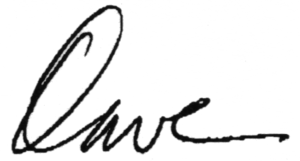
By Simon Akouete
Summer 2021 Newsletter
The Togolese population is predominantly young and the state does not guarantee jobs for all, so we are seeing insufficient opportunity for young people. Because of this lack of opportunity, an alternative approach is needed to help young people acquire skills, become leaders, and work together to build the future of their community.
Défi et Révolution de la Vie Rurale (DRVR-TOGO) is a non-profit organization under Togolese law whose mission is to help young people and vulnerable women find sustainable employment or create a sustainable business. We have created a program of guidance, training, and follow-up support through a project called BICYCLE FOR ALL. DRVR-TOGO and Pedals for Progress intend to strengthen the resilience of Togolese to health and economic crises.
Bicycles can be extremely useful in Togo:
- Students sometimes walk for more than an hour to get to school.
- Farmers sometimes walk for hours to get to their farms.
- Sick people sometimes stay at home because they do not have the means of getting to the health center.
- Women use bikes to carry all kinds of cargo: water, firewood, and even children.
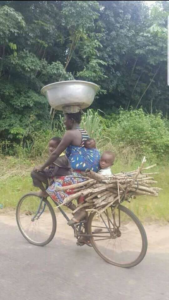 BICYCLE FOR ALL partners with communities to make it easier to get around, leading to social and economic development. Bicycles offer affordable transportation for rural populations, help improve their access to resources such as education, health care, employment and markets. Most rural populations walk because motorized transport is often scarce and extremely expensive. Cycling is four times more efficient than walking.
BICYCLE FOR ALL partners with communities to make it easier to get around, leading to social and economic development. Bicycles offer affordable transportation for rural populations, help improve their access to resources such as education, health care, employment and markets. Most rural populations walk because motorized transport is often scarce and extremely expensive. Cycling is four times more efficient than walking.
BICYCLE FOR ALL is a program that brings bikes to the most rural areas of Togo and organizes workshops in villages where people can buy bicycles at subsidized costs and receive training in bicycle maintenance.
In our introductory workshop, people learn basic maintenance and repair of bicycles, such as cleaning and oiling the chain, repair of flats, and correct use of brakes and gear systems. In advanced workshops, bike mechanics learn to use freewheel tools and chain tools while receiving hands-on training on more advanced cycling systems. This program also offers bicycle tools at subsidized costs, We hope that our programs help people find or create long-term employment as bike mechanics and help keep bikes on the road.
BICYCLE FOR ALL also focuses its programs on women and girls by guaranteeing them a loan for the development of their Income Generating Activities.
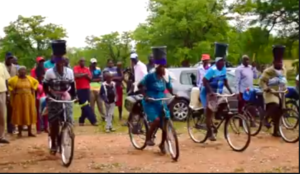 World Water Day is an annual United Nations observance day held on 22 March that highlights the importance of fresh water. This year’s theme is the value of water. The value of water is not limited to its price, far from it: it has huge importance for households, food, culture, health, education, economy and our entire natural environment. If we neglect any of the complex issues surrounding water, we risk not managing wisely this limited and irreplaceable resource. Here in Togo, this day is celebrated coupled with the national day of emancipation of women. For this celebration, DRVR-TOGO organized a bicycle race for women. “Water source of life” is the slogan of the ceremony, but we are far from the dream of easily available water. Many of our villages have no water, and women travel miles by bike carrying containers of water.
World Water Day is an annual United Nations observance day held on 22 March that highlights the importance of fresh water. This year’s theme is the value of water. The value of water is not limited to its price, far from it: it has huge importance for households, food, culture, health, education, economy and our entire natural environment. If we neglect any of the complex issues surrounding water, we risk not managing wisely this limited and irreplaceable resource. Here in Togo, this day is celebrated coupled with the national day of emancipation of women. For this celebration, DRVR-TOGO organized a bicycle race for women. “Water source of life” is the slogan of the ceremony, but we are far from the dream of easily available water. Many of our villages have no water, and women travel miles by bike carrying containers of water.
The BICYCLE FOR ALL program will improve the lives of the people in our communities, especially women. So we are launching a call to our partner Pedals for Progress to continue to support us through its bicycle and sewing machine programs.
Summer 2021 Newsletter
Rags2Riches (R2R) is a social enterprise established in 2007 that provides livelihood to artisans from poor communities in the Philippines. Reese Fernandez-Ruiz, the President & Co-Founder of R2R is a Rolex Young Laureate for 2010, which paved the way for the partnership with Sewing Peace.
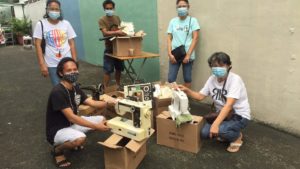 In October 2020 Reese Fernandez-Ruiz and David Schweidenback were interviewed by the Washington Post together for a dynamic new media article called Trash to Treasure Hunters, in partnership with Rolex.org. As both Reese and David are Rolex Awardees for the Environment, they shared their experiences on upcycling, recycling, and creating better opportunities for people through transforming waste into valuable assets. The partnership between R2R and Sewing Peace was a natural fit. R2R provides livelihood opportunities for artisans from the Philippines while Sewing Peace provides valuable livelihood-enabling assets such as sewing machines to communities in need. Not long after the interview was published, Reese and David continued their conversation and established a partnership.
In October 2020 Reese Fernandez-Ruiz and David Schweidenback were interviewed by the Washington Post together for a dynamic new media article called Trash to Treasure Hunters, in partnership with Rolex.org. As both Reese and David are Rolex Awardees for the Environment, they shared their experiences on upcycling, recycling, and creating better opportunities for people through transforming waste into valuable assets. The partnership between R2R and Sewing Peace was a natural fit. R2R provides livelihood opportunities for artisans from the Philippines while Sewing Peace provides valuable livelihood-enabling assets such as sewing machines to communities in need. Not long after the interview was published, Reese and David continued their conversation and established a partnership.
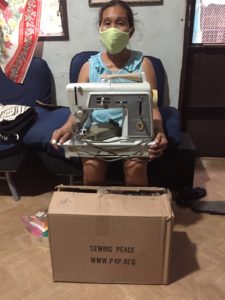 Sewing Peace shipped 35 beautiful and functional sewing machines to R2R in December 2020. All of these sewing machines were distributed to the main artisans of R2R. These machines enable the artisans to generate livelihood while staying home and keeping themselves and their families safe and healthy. All of R2R’s artisans are very grateful for these valuable tools that enrich their lives and create opportunities for them to support their families especially during this pandemic.
Sewing Peace shipped 35 beautiful and functional sewing machines to R2R in December 2020. All of these sewing machines were distributed to the main artisans of R2R. These machines enable the artisans to generate livelihood while staying home and keeping themselves and their families safe and healthy. All of R2R’s artisans are very grateful for these valuable tools that enrich their lives and create opportunities for them to support their families especially during this pandemic.
Sewing machines are incredible tools for artisans to be able to practice their craft while generating income for their families. R2R’s main tool has always been the weaving loom. However, sewing machines also emerged as another indispensable tool that, combined with the use of the weaving loom, could create unique and valuable masterpieces that could generate more income for artisans. R2R provides the training for sewing and weaving as well as continuous market access.
The sewing machines provided by Sewing Peace are valuable assets for artisans to lift themselves out of poverty and stay out of poverty.
By Alan Schultz
Summer 2021 Newsletter
In the world of Pedals for Progress, cool overcast days bring the potential for amazing collections. Sunny spring weekends give a good excuse to enjoy the day, spend the day outdoors, and have a leisurely time. On the inverse, on cloudy days people are more prone to staying indoors and getting to that long list of things to do around the house. We hope that list includes donating their old bicycles and sewing machines that have been getting pushed to the end of the to-do list. While we hope for days like these, overcast days can also bring cold rain. We operate collections rain or shine! We understand rainy collections can be difficult for volunteers and are always thankful that despite rain our volunteers push through and prevail. The payoff for operating in these conditions can sometimes be very fruitful. This was certainly the case in New Providence, New Jersey, when our friends at the Faith Lutheran church were able to hold one of the largest collections in recent years.
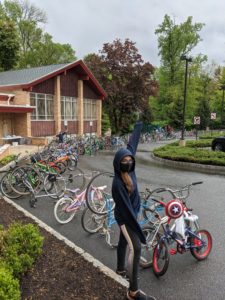 On May 8th, during a cold rainy collection, Faith Lutheran Church was able to collect 402 bicycles for the weekend! Over the short three-hour collection, they maintained a donation rate of nearly one bike per minute! Our collections vary greatly and can bring in anywhere from 30–150 bicycles. These numbers are typically met by a combination of luck, good planning, and most importantly — motivated hosts. The folks at Faith Lutheran Church knocked it out of the park and were able to go above and beyond for this collection.
On May 8th, during a cold rainy collection, Faith Lutheran Church was able to collect 402 bicycles for the weekend! Over the short three-hour collection, they maintained a donation rate of nearly one bike per minute! Our collections vary greatly and can bring in anywhere from 30–150 bicycles. These numbers are typically met by a combination of luck, good planning, and most importantly — motivated hosts. The folks at Faith Lutheran Church knocked it out of the park and were able to go above and beyond for this collection.
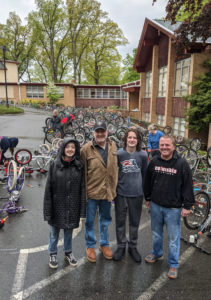 Pedals for Progress is greatly appreciative of this great number of bicycles collected. 400 bicycles are close to what we typically send in one single container to our partners overseas. In one weekend, Faith Lutheran was able to directly impact the lives of hundreds of people associated with our partners overseas in the developing world. This collection alone was a major contributor to our loading to Rwanda and helped make possible an early shipment to Togo. What was expected to be an unpredictable, perhaps even slow, spring collection season due to Covid-19 was instantly turned around by the efforts made by Faith Lutheran Church. The rain that hit during the collection was no match for the dedicated people in the community of New Providence that came out to donate their bicycles. They directly impacted the communities in Rwanda and Togo, who, like all of us, have been in a state of uncertainty due to our global pandemic. These early shipments have brought great hope and relief to those reliant on receiving new bicycles as communities abroad have also felt the economic effects of Covid-19.
Pedals for Progress is greatly appreciative of this great number of bicycles collected. 400 bicycles are close to what we typically send in one single container to our partners overseas. In one weekend, Faith Lutheran was able to directly impact the lives of hundreds of people associated with our partners overseas in the developing world. This collection alone was a major contributor to our loading to Rwanda and helped make possible an early shipment to Togo. What was expected to be an unpredictable, perhaps even slow, spring collection season due to Covid-19 was instantly turned around by the efforts made by Faith Lutheran Church. The rain that hit during the collection was no match for the dedicated people in the community of New Providence that came out to donate their bicycles. They directly impacted the communities in Rwanda and Togo, who, like all of us, have been in a state of uncertainty due to our global pandemic. These early shipments have brought great hope and relief to those reliant on receiving new bicycles as communities abroad have also felt the economic effects of Covid-19.
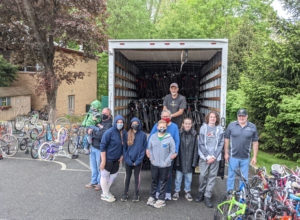 Pedals for Progress would also like to give special thanks to Casey Walsh, who manages the collection efforts at Faith Lutheran. Casey is proof that motivated hosts can change a typical collection into an extraordinary one. While not required as part of running a collection, Casey used some of his free time to personally collect bicycles and provide the necessary funds before the collection weekend. His efforts not only brought in an extra hundred or so bikes, but also spread the word of P4P and Sewing Peace. He is a true advocate of our organization and is very passionate about helping our cause. We thank him dearly.
Pedals for Progress would also like to give special thanks to Casey Walsh, who manages the collection efforts at Faith Lutheran. Casey is proof that motivated hosts can change a typical collection into an extraordinary one. While not required as part of running a collection, Casey used some of his free time to personally collect bicycles and provide the necessary funds before the collection weekend. His efforts not only brought in an extra hundred or so bikes, but also spread the word of P4P and Sewing Peace. He is a true advocate of our organization and is very passionate about helping our cause. We thank him dearly.
Casey’s motivation certainly rubs off on the members of Faith Lutheran Church. I was able to talk with some of the other members volunteering during the end of the rainy collection when we had some time after the bustling event. They were all incredibly excited to help process the bicycles for shipment and manage the heavy flow of bicycles. Behind the scenes, Casey was also able to encourage the church’s public relations team to spread the word about the collection. They reached a wide audience in the community to come out and support the collection drive. Creating motivation within a group is not always an easy endeavor but Casey was able to raise morale and host a collection worth talking about.
We look forward to working with Faith Lutheran Church again in the future and again thank them for their time and dedication to Pedals for Progress. It is not a common occurrence that we get collections of 402 bicycles — we commend them for their work.
By Neal Oussoren
Summer 2021 Newsletter
[Editor’s note: We don’t usually hear about European kids using bikes as a primary means of transportation, but we got this story from P4P supporter Neal Oussoren. He wrote us a note that mentioned an interesting experience with a bike in World War II. I spoke with Neal by phone. Here is what he told me.]
I was born in 1934 in Middelburg, in the Zeeland province in the southwestern Netherlands. I was oldest of 5 children. My father was a minister. We lived in a house next to his church.
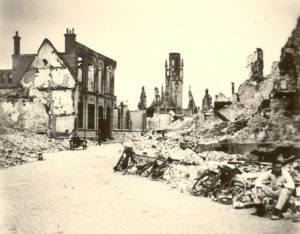 Middelburg was occupied by the German army in 1940 in the Battle of Zeeland. Much of the old town was destroyed.
Middelburg was occupied by the German army in 1940 in the Battle of Zeeland. Much of the old town was destroyed.
Staples became scarce. Food was rationed. We had coupons that specified what we were entitled to per week. We spread soft white cheese on bread. After the war I remember aid from the US: clothes, shoes, food, including peanut butter.
Though some foods were in short supply, my father had lots of contacts in the community. He knew several farmers who lived within a few kilometers of town. We did not have a car. It would not be easy to get food from the farms on foot; it would be much easier on a bike.
In 1941 my father bought a bicycle. You braked by pressing your shoe against the front wheel. The Germans were confiscating bikes at the time, so my father replaced the front wheel with a much smaller wheel, from a scooter, to make the bike less likely to be confiscated. Also, the Germans were less likely to take a bike from a 10-year-old. My father attached wooden blocks to the pedals so I could reach them.
My job was to visit several farms outside town. I picked up milk and bread year-round, vegetables in the growing season. During the school year I left home by 7 a.m. so I could be back by 8 to go to school. I rode about 7 miles to do my pickups.
I carried the milk and vegetables in containers on the bike. The back of the bike was piled so high I could not swing my leg over the vegetables, so I had to step over the top tube.
On one of my trips a German truck cut a corner too close. I forgot about the bag on the back of the bike, so when I tried to swing my leg over I crashed and got knocked out. I came to and made it home OK.
On another trip, I noticed that Dutch collaborators, members of the NSB party, were confiscating milk on a bridge on my usual route. I warned others. One of my friends told me that he could help me get across the river at a nearby concrete factory. I picked up the milk and rode to the factory, where my friend rowed me, my bike, and the milk across the river. I took a different route back to the city to avoid the collaborators.
I’ve lived in the US since 1951, but my wartime memories are vivid. The bike was a godsend.
By PASS/Ecovolis
Summer 2021 Newsletter
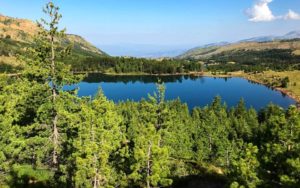 Once upon a time Lurë was one of the most beautiful pearls of the Balkans. Its 7 lakes were surrounded by Armenian pine from one to five centuries old. This majestic forest — at altitudes of 5000 – 6000 feet, along with hundreds of waterfalls, hundreds of plants and animals, lakes and wildlife — invited visitors from Europe, the Balkans, and all over the country.
Once upon a time Lurë was one of the most beautiful pearls of the Balkans. Its 7 lakes were surrounded by Armenian pine from one to five centuries old. This majestic forest — at altitudes of 5000 – 6000 feet, along with hundreds of waterfalls, hundreds of plants and animals, lakes and wildlife — invited visitors from Europe, the Balkans, and all over the country.
Albanian poet Gjergj Fishta said, “Who has not seen Lurë, has not seen Albania.” Edith Durham, a famous writer on Albania, says that when she arrived in Lurë, the fascinating view amazed her forever.
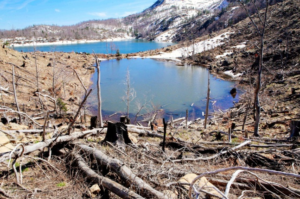 With the fall of communism in Albania, a brutal deforestation, similar to a natural holocaust, started in Lurë. People from nearby areas, but who never had lived in or felt connected to Lurë, rushed to plunder it by cutting down hundreds of centuries-old pines.
With the fall of communism in Albania, a brutal deforestation, similar to a natural holocaust, started in Lurë. People from nearby areas, but who never had lived in or felt connected to Lurë, rushed to plunder it by cutting down hundreds of centuries-old pines.
Everyone thought that nature and the park were eternal, but within a few years there were no trees left standing. People couldn’t believe it was gone. Most of them abandoned Lurë, the park, the village, its surrounding nature. The whole ecosystem — wildlife, biodiversity — was destroyed and changed forever.
The inhabitants of Lurë themselves, powerless to protect the park from the illegal gangs, surrendered, joined in the crime against the great natural wealth and beauty around them.
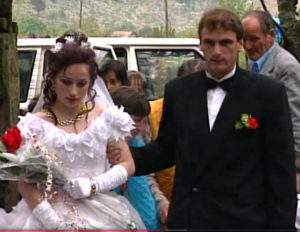 This is a wedding that took place in 1998 in the village of Lurë where the wedding traditions continued to be preserved. The groom works with wooden forest trunks, while the bride is a teacher from a village near Lurë. After the marriage they and many others left Lurë for a better life in Tirana, but then left Tirana and after 2 years ended up in England.
This is a wedding that took place in 1998 in the village of Lurë where the wedding traditions continued to be preserved. The groom works with wooden forest trunks, while the bride is a teacher from a village near Lurë. After the marriage they and many others left Lurë for a better life in Tirana, but then left Tirana and after 2 years ended up in England.
Lurë was forgotten, abandoned by its inhabitants.
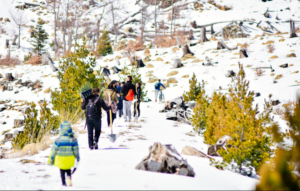 Twenty-five years later, it was a cold October with Lurë covered in snow, the road not visible. A group of 10 environmental activists from Tirana was visiting to plant young pines and pine seedlings. Some of us were visiting Lurë for the first time, some had been there with their parents when the pines where standing. We stopped when the road got too steep and icy to continue in the vehicles.
Twenty-five years later, it was a cold October with Lurë covered in snow, the road not visible. A group of 10 environmental activists from Tirana was visiting to plant young pines and pine seedlings. Some of us were visiting Lurë for the first time, some had been there with their parents when the pines where standing. We stopped when the road got too steep and icy to continue in the vehicles.
We unloaded 50 3-year-old pine trees and a bunch of seedlings, took our shovels and food, and set off on foot on the road to the lakes.
Destruction surrounded us, cut trees and trunks everywhere, deserts of fallen trees where wildlife once thrived. We felt sadness at every step of our mission through the majestic park, now destroyed.
Very determined upon arriving at the first lake, we quickly dug the first 25 holes. When we had time to rest, we had a look around, and the destruction was enough to get us back to our shovels. We dug the other 25 holes, this time more confident, more determined that we were doing the right thing.
This initiative resonated in Albania, bringing together in a short time thousands of volunteers and shovels, and unprecedented will to undo the destruction by planting thousands of young pines and seedlings. The organization that launched the All For Lurë Initiative was Ecovolis NGO; its core partner that made this possible was Pedals for Progress. Everything so far was made possible by this partnership.
Every week activists from all over Albania went to Lurë to plant the seedlings of hope. Although Lurë was completely devastated, the motive for returning and acting was stronger than the feeling of surrender. It has been 6 years since the seedlings were planted, and Lurë is coming back.
What about people? They are leaving again.
No longer in contact with nature, no longer having a way to secure their livelihood, many have abandoned the land. They leave because they have no job, no way of life in the deep mountain villages. They leave for economic reasons and also for social ones.
The mass abandonment of villages has posed a risk to agriculture. Shepherds are emigrating and the areas around those villages are being destroyed. As in Lurë, the forests have been cut down or burned, and pastures are burning. Biodiversity in many areas near these villages has changed. Hundreds of species have become extinct. The production of food has decreased and the villages are importing more from abroad. Our local food products are missing from our tables.
For now, a hopelessness has gripped these villages, a feeling of impossibility or a wish to leave the area as soon as possible.
The third abandonment of Lurë would be the most devastating, with a new risk of handing over the park to the Hydro Power Plant businesses that want water to supply their turbines.
What if?
Ecovolis and P4P have initiated an activity with the help of bicycles and sewing machines to repopulate abandoned villages in the impoverished north of Albania.
Ecovolis with the support of Pedals for Progress has a plan to organize somewhat differently Lurë’s future: to encourage some of the people to return and to give them hope for a future. We have a plan for the return of a new kind of tourism in Lurë and a return of a traditional skill.
- tent camping by bicycle
- sewing machines to restore the tradition of embroidery
Will we all work together to create a model of hope and enthusiasm in Lurë and beyond. Lurë was a model of natural beauty and usefulness, of work and endurance of the inhabitants. Why not again be a leader in disseminating these values?
By Clovert Mbenja
Summer 2021 Newsletter
Rising Hope Foundation for Change, in partnership with Sewing Peace, is implementing a program aimed at training vulnerable women and teenage girls in sewing, fashion, and design in Cameroon. This training program will empower these women with life skills such as tailoring, professional sewing, fashion and design, sewing machine repair, and basic computer knowledge. They will learn how to run tailoring businesses from their homes. Though women and girls at the entry point of the program may be unskilled, they will leave with a means to earn a livelihood, become trainers, and provide for their own families’ sewing needs. This program will promote and create female entrepreneurs and generate income. The program promotes economic self-reliance of women and girls in Cameroon and addresses the Sustainable Development Agenda 2030.
The zigzag sewing machines and other accessories sent by SP are very useful: they give a professional touch to the women who learn specialized sewing with different stitches. Some of the women have added new services because of the zigzag machine. At first, they had to travel long distances to use zigzag machines that are costly and unreliable. Now they can work at home or in our Centre.
We have also started a program to make and sell washable (and thus re-usable) sanitary pads to be used instead of the disposable ones. Thus we reduce the impact on the natural environment .
At the end of their training process, our trainees will be able to be either self-employed or hired as part of the team working on the washable sanitary pads.
This will have several benefits for the communities:
- skills development
- employment opportunities
- financial independence
- unemployment reduction
- poverty reduction
- better understanding of the menstrual cycle through the training for sanitary pad production
- better control of pregnancies
- better management of resources: options for education, potential for future earnings, and family planning
The Administration Entities in these regions will directly benefit from these programs, furthering their own objectives in terms of public health, social environment, and unemployment rates in the community, the region, and the country as a whole.
It will be a win-win situation for the Government, girls and women, and the community as a whole. Officially, Rising Hope Foundation for Change will launch the program in September 2021.
Success Stories
We gave some basic training to women who can sew but cannot afford a sewing machine. At the end of this 14-day training period, we gave them one sewing machine each. RHFC is excited and proud to bring these stories and thanks from the beneficiaries of the project.
Mami Blessing
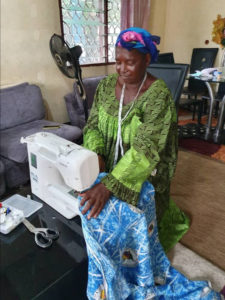 I am happy for this gift from Rising Hope Foundation of Change and its partner Sewing Peace. As a widow, I thought the world had forgotten about me. I was surprised when one of my mothers in church told me I was one of the lucky recipients of a sewing machine. I thought it was a joke until the coordinator himself called me to pick it up at the Centre. This machine is going to help me and my small family a lot. The 200 to 300 Francs we earn by patching dresses will help me buy breakfast for my children.
I am happy for this gift from Rising Hope Foundation of Change and its partner Sewing Peace. As a widow, I thought the world had forgotten about me. I was surprised when one of my mothers in church told me I was one of the lucky recipients of a sewing machine. I thought it was a joke until the coordinator himself called me to pick it up at the Centre. This machine is going to help me and my small family a lot. The 200 to 300 Francs we earn by patching dresses will help me buy breakfast for my children.
We all are going to improve our skills in sewing since the machine will keep us constantly working on small materials and children’s torn dresses. It is going to help me train my children in learning the art of sewing since we are not going to pay people to teach us again.
I pray that the lord almighty will bless Rising Hope Foundation for Change and their partner immensely.
Mangwi Ndi
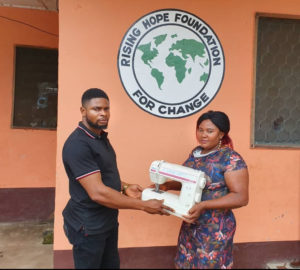 As an orphan who has spent more than 25 years in a remote village, I never knew people were so kind until I came to Limbe due to the ongoing Anglophone crisis. My boss introduced me to a matron of an orphanage who has a link with RHFC. That is how, after explaining my situation to the organization, I was lucky enough to get this sewing machine. Getting a machine from people I don’t know and haven’t heard of was a double miracle to me.
As an orphan who has spent more than 25 years in a remote village, I never knew people were so kind until I came to Limbe due to the ongoing Anglophone crisis. My boss introduced me to a matron of an orphanage who has a link with RHFC. That is how, after explaining my situation to the organization, I was lucky enough to get this sewing machine. Getting a machine from people I don’t know and haven’t heard of was a double miracle to me.
I am a seamstress by training but have been working for another person because I could not open a place of my own. This machine I just received will help me open my own shop and teach underprivileged girls and boys how to sew at a very low cost. Having this machine has given me full employment; it will help me earn money to build my future and take care of my needs like rent and family expenses. From my heart I pray the good Lord bless all the people supporting all the efforts of Rising Hope Foundation for Change.
Manka Synthia
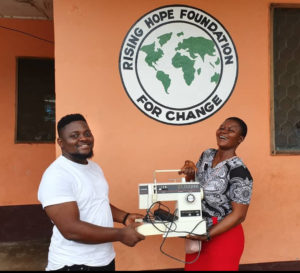 I am a single mother with 2 children. I was a farmer before the crisis started. When it became serious I had to stop going to the farm because of insecurity. I was advised by my landlady to learn a skill. She told me tailoring would be good because you can practice it until you are 70 years old. When going to do my hair at the Empowerment Centre of Rising Hope Foundation for Change, I overheard the members talking of the sewing machine program. I pleaded with them to put my name on the list in case they need single suffering mothers. To my great surprise I was called up for my special gift of a sewing machine. The machine will save me the money I was to pay for a new machine. It will help me learn fast since I will be learning at home and at the tailoring workshop. I think I will use the machine very well so that I can hand it down to my children when they grow. In the future I may also open a centre to train other single mothers like me.
I am a single mother with 2 children. I was a farmer before the crisis started. When it became serious I had to stop going to the farm because of insecurity. I was advised by my landlady to learn a skill. She told me tailoring would be good because you can practice it until you are 70 years old. When going to do my hair at the Empowerment Centre of Rising Hope Foundation for Change, I overheard the members talking of the sewing machine program. I pleaded with them to put my name on the list in case they need single suffering mothers. To my great surprise I was called up for my special gift of a sewing machine. The machine will save me the money I was to pay for a new machine. It will help me learn fast since I will be learning at home and at the tailoring workshop. I think I will use the machine very well so that I can hand it down to my children when they grow. In the future I may also open a centre to train other single mothers like me.
By Kushtrim Gojani, GoBike
Summer 2021 Newsletter
The Coronavirus pandemic found Kosovo unprepared, as was the case with most countries of the world. For a considerable part of 2020 the whole country was in lockdown. Following the peak of cases in late 2020 and early 2021, infections have steadily declined since early April 2021. As of late June 2021, there have been 107K Covid-19 cases in Kosovo, and 2255 deaths.
On 28 March 2021 Kosovo received the very first contingent of 24,000 doses of vaccines through COVAX. Up until then, Kosovo was was the only country in Europe without any vaccines. The vaccination of the population has started and is progressing slowly. By the end of this year we hope everyone will have a chance to get vaccinated.
The Impact of the Pandemic on GoBike
Partnering with Pedals for Progress has been crucial to getting the GoBike social enterprise going. Through our partnership we have managed to set up the enterprise, sell bicycles to beneficiaries from all walks of life, organize cycling events, and teach people how to ride a bike. Despite the initial success in 2018 and 2019 with the first container of bicycles, a year and a half later the pandemic forced us to cancel our work completely, as ordered by the Government of Kosovo. We have been closed for the entire 2020 season. Receiving the second container from Pedals for Progress had also to be put on hold.
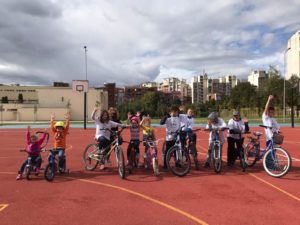 In October 2020 GoBike teamed up yet again with AYA ‘Pjetër Bogdani’ to organize “Cycling Schools” to teach even more kids in Pristina how to ride a bike. Cycling Schools were quite popular and sought after. One can never have enough of such events, as the demand is high, particularly amongst children.
In October 2020 GoBike teamed up yet again with AYA ‘Pjetër Bogdani’ to organize “Cycling Schools” to teach even more kids in Pristina how to ride a bike. Cycling Schools were quite popular and sought after. One can never have enough of such events, as the demand is high, particularly amongst children.
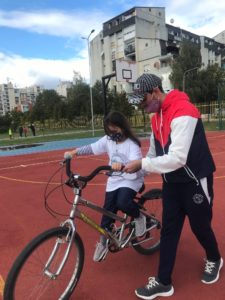 The Cycling Schools took place in the Dardania elementary school yard in Pristina. They were free of charge. In the past, the motivation of GoBike to organize such activities had been to contribute to the growing of the cycling community of Pristina; help young girls and boys grow independent; provide a cycling experience to the adults who have never experienced cycling before; and reduce carbon emissions into the air by promoting cycling as a more sustainable way of transport. This time, we had an additional reason. Through cycling schools we wanted to work with as many people as possible who have spent a lot of their time indoors without much physical activity, and get them back to bicycles and an active lifestyle —very important for their health and wellbeing.
The Cycling Schools took place in the Dardania elementary school yard in Pristina. They were free of charge. In the past, the motivation of GoBike to organize such activities had been to contribute to the growing of the cycling community of Pristina; help young girls and boys grow independent; provide a cycling experience to the adults who have never experienced cycling before; and reduce carbon emissions into the air by promoting cycling as a more sustainable way of transport. This time, we had an additional reason. Through cycling schools we wanted to work with as many people as possible who have spent a lot of their time indoors without much physical activity, and get them back to bicycles and an active lifestyle —very important for their health and wellbeing.
We hope that normality will be restored soon. At GoBike, we hope to be able to resume our work and receive a new container of bicycles from P4P. This should provide us with sufficient stimulation to pick the work right where we left off.
By Shed Jah
Summer 2021 Newsletter
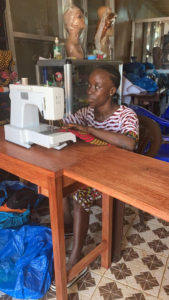 Isatu Kamara is a single mother. She is just returning to the country from the UAE, where she has spent almost 4 years with captors who tricked her into leaving Freetown for what they said was a greener pasture in the UAE. After 4 years as a sex slave, she was repatriated by the Sierra Leone government. With no home or savings, she was left begging to feed herself and her one-year-old son. She was living in abject poverty, sometimes bunking with her sister, who is herself barely surviving.
Isatu Kamara is a single mother. She is just returning to the country from the UAE, where she has spent almost 4 years with captors who tricked her into leaving Freetown for what they said was a greener pasture in the UAE. After 4 years as a sex slave, she was repatriated by the Sierra Leone government. With no home or savings, she was left begging to feed herself and her one-year-old son. She was living in abject poverty, sometimes bunking with her sister, who is herself barely surviving.
When we opened the fashion school it was meant to address the issue of lack of skills amongst our youth, especially girls. Isatu heard about us from a friend and enrolled immediately. These days she spends her days at the school whilst we watch her little son. She is very grateful and happy. In the near future we will provide a day care facility for the children in our community.
Isatu Kamara is one of the many vulnerable women who are benefiting from the sewing machines sent to Sierra Leone by Sewing Peace.
By Mathew Yawe, Executive Director, Mityana Open Troop Foundation
Summer 2021 Newsletter
On behalf of the Mityana Open Troop Foundation, I have compiled a progress report which I wish to present to you.
Mityana Open Troop Foundation (MOTF) is a registered Community Based Organization, with a Vocational Skills Training Centre, which Recruits and trains disadvantaged youths, young girls formerly selling sex for survival, girls expelled from school due to teenage pregnancies, and youths who dropped out of school due to Covid-19. All these youths are trained in sustainable vocational skills. Before the Covid-19 pandemic forced us to close, the vocational project had a population of over 100 trainees. Unfortunately, by the end of March 2021, the vocational project had an enrollment of 50 trainees!
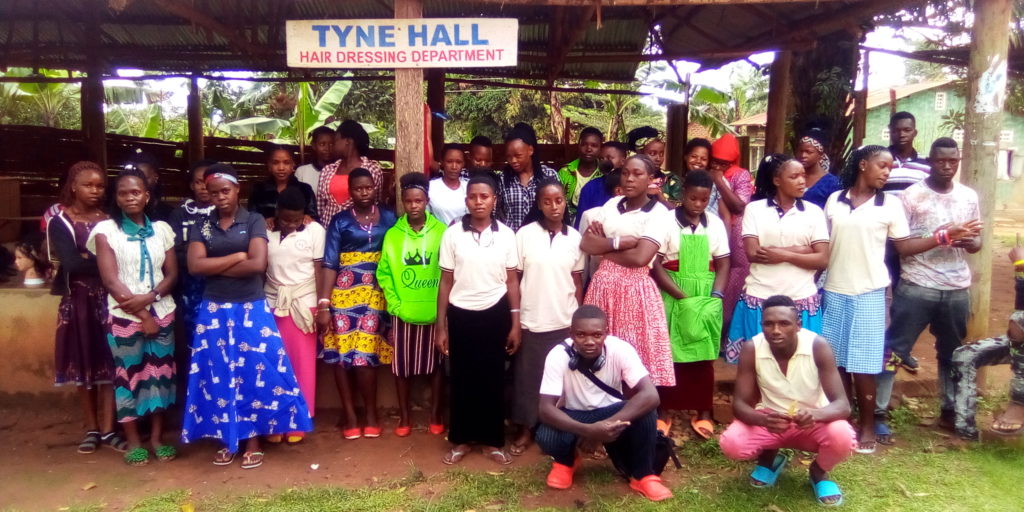 Since the inception of the Vocational Skills Training project in 2007, a total of over 800 have graduated. Some got employed while others have managed to set up their own shops. Every graduate of our program is given a sewing machine from Sewing Peace, USA. Without equipment, the graduation certificate is no help, as 90% of graduates can’t afford tools.
Since the inception of the Vocational Skills Training project in 2007, a total of over 800 have graduated. Some got employed while others have managed to set up their own shops. Every graduate of our program is given a sewing machine from Sewing Peace, USA. Without equipment, the graduation certificate is no help, as 90% of graduates can’t afford tools.
Students are trained for 2 years in Sewing & Fashion Design, Hair Dressing & Weaving, or Motor Vehicle Mechanics. Every year, there are 3 training terms of 3 months each; for each term the centre recruits whoever wishes to join.
Achievements
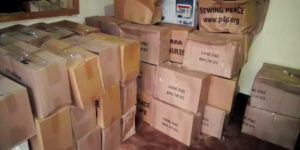
- The organization with the help from Mr. Chris James Eldridge of the UK, managed to fund another shipment of 71 sewing machines from Sewing Peace. The machines arrived at the project and have been put to use by trainees.
- To help prevent Covid-19, our sewing shop has been producing face masks and selling them at a price lower than our competitors’.
- In April 2021, the vocational project registered new trainees into non-formal skills training program. These are the youths who have dropped out of formal education as a result of socio-economic effects of Covid-19. Other youths have given birth during the 14-month school closure and can’t go back to their former schools.
Challenges and Limitations!
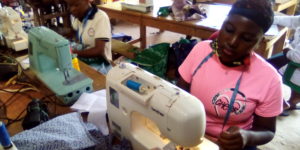 The Covid-19 lockdown of learning institutions has caused a number of students to drop out. Most parents lost jobs, and businesses no longer worked well, so parents could not pay school fees.
The Covid-19 lockdown of learning institutions has caused a number of students to drop out. Most parents lost jobs, and businesses no longer worked well, so parents could not pay school fees.- The prolonged lockdown caused many students to lose hope of returning to school. Many children were idle and moving up and down, which resulted in teenage pregnancies and sexually transmitted infections. Some students got petty jobs where they earned a little money and lost interest in going back to formal education.
- Because all training institutions have been under lockdown since March 2020, we have lost an entire year of income from school fees.
- The Organization still encounters challenges in raising funds for shipping sewing Machines from Sewing Peace.
- The sewing training workshop requires a new floor with tiles; the machines needs a strong floor. Currently the floor is dusty, which damages sewing machines.
- The vocational project needs be supplied with 80% manual sewing machines, as they are easier to repair than electric machines, which are expensive to repair when their gears and rollers fail. Even electricity is a challenge in some of our remote Ugandan communities.
- The Organization lacks a computer, printer, and photocopier, which we need to print end-of-term exams and other office documents. Currently all computer work is taken to town.
- The project requires a computer lab with internet access to enable our trainees to access zoom communication with other international students and exchange developmental ideas, and to access health-related issues, including Covid-19 information.
- The project requires a new embroidery machine that can use a USB drive and that can run faster. The current machine is slow and often needs routine maintenance and servicing.
- The Organization requires office furniture and a staff room, as instructors don’t have a place to sit and keep their kits.
- The Training Centre lacks clean water. There is a very small (2000-liter) water tank, which lasts 2 days. Then students have to go on foot 1 km in search of water from unprotected water sources. This has resulted in many cases of Typhoid.
- We have many cases of malaria among project trainees, as they lack mosquito nets. In every term we get over 85% malaria cases among trainees. Malaria is the disease with the highest death toll in Uganda.
- There is a great need of renovating training hall roofs, as all are broken due to leaking iron sheets.
Way Forward & Recommendations
- On the 13th of November 2021, we will hold our 8th Vocational Project Graduation Ceremony, where over 100 youths will be commissioned and awarded start-up kits in Hairdressing & Weaving, Sewing & Fashion, or Motor Vehicle Mechanics. You are invited please.
- We are fundraising for a new 2-classroom block, to enable us to create a conducive training environment and have room for more students.
- We need a new roof for the Tyne Hall workshop, where we teach Hair Dressing and Weaving.
- We need a new toilet for boys, who currently share facilities with girls, which is not recommended!
- We need embroidery machines with USB input, as the one we have is very slow and requires mechanical servicing all time!
- We welcome volunteers who can teach sustainable skills to our youths. We would like to partner with similar vocational training institutions elsewhere in the world. This will help us learn how they operate. Plus it will help our Ugandan youths create friendships with fellow youths and learn about their cultures.
Conclusion and Appreciations
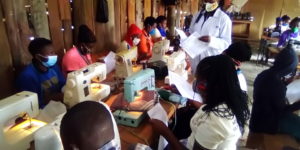 In conclusion, I thank Mr. Chris Eldridge, Mr. David Schweidenback of Sewing Peace, Mr. Colin Dippie and Mrs. Jane Louise Dippie, Mr. Nino Ardizz and Ms. Madison Ardizz, who have been so supportive to our organization. This has been and still is a very challenging season.
In conclusion, I thank Mr. Chris Eldridge, Mr. David Schweidenback of Sewing Peace, Mr. Colin Dippie and Mrs. Jane Louise Dippie, Mr. Nino Ardizz and Ms. Madison Ardizz, who have been so supportive to our organization. This has been and still is a very challenging season.
I extend our thanks to the generous communities of the USA who have been donating their used Sewing machines to our needy Ugandan communities. Please, the used sewing machines which seem unimportant in the USA have uplifted our communities, changing peoples’ lives by creating a daily source of income.
Furthermore, we extend our sincere appreciations to our new Rotarian & Scouts friends: Ms. Sarah Kim from South Korea, Ms. Ivonne Sencebe Reilley and Pat Curley of the USA, who are trying to raise funds for a computer lab and construction of a classroom block.
Please thank you so much.
I pray that every one is safe from the Covid-19 Pandemic.
By Nguyen Van Hanh, General Manager, Dariu Foundation
Summer 2021 Newsletter
Yen Nhi, 15 years old, was born into a poor family. Nhi is the eldest of 5 children in the Mekong Delta province of Vinh Long, 180 km west of Ho Chi Minh city. Her mother has some serious health problems and she has been using a wheel-chair for a long time. The family’s income has largely depended on the noodle-for-breakfast business with monthly income of around $170. This could hardly help the family make both ends meet.
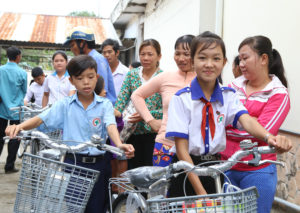 When Nhi was in 7th grade, she told her parents that she had no longer wanted to go to school because she thought that they could not afford her secondary and high-school education. Her parents had been undecided between paying her school fees or letting her leave school. Luckily, they finally decided that she had to continue her education, hoping that she could have a better future.
When Nhi was in 7th grade, she told her parents that she had no longer wanted to go to school because she thought that they could not afford her secondary and high-school education. Her parents had been undecided between paying her school fees or letting her leave school. Luckily, they finally decided that she had to continue her education, hoping that she could have a better future.
As compared to her peers, Nhi is a strong girl at her age. Every morning, she supported her father with simple tasks at the noodle-for-breakfast business from 6:00 am to around 10:00 am. Then her father rushed to his other jobs or to buy materials at the local market for the next day’s business. She helped prepare lunch for the family and then left for school at about noon, since her classes started at 12:30 and it took her about 20–25 minutes to walk there. Nhi had several good friends, so they often picked her up with their bicycles. But when they could not come, Nhi had to walk. It was a hard walk for her, especially during sunny and rainy days.
In 2020, Nhi was referred by her teacher who knew about Dariu’s bicycle-granting program. She was granted with a bicycle from Pedals for Progress and a little financial support from The Dariu Foundation. Thanks to P4P’s bicycle, Nhi could go to school much more easily. As a result, her GPA increased from 7.5 (before being granted a bicycle) to 9.2 and she was nominated as the best student of the school year 2020–2021 at her school. Nhi graduated from secondary school in May 2021, and will start high school in this September. Although the new high school is further from home than the secondary school, Nhi is determined to complete her high school education and expects to enter university as an IT student.
Yen Nhi is among the more than 2,000 beneficiaries who, since 2012, have been granted P4P used bikes by The Dariu Foundation. The cooperation between the two organizations has enabled hundreds of poor kids in Vietnam and Thailand to continue their education with ease and prepare for a better future.
By Alan Schultz
Summer 2021 Newsletter
Pedals for Progress recently celebrated thirty years of collecting bicycles and sewing machines to be sent to the developing world. The mission of the organization has been very clear over the years: to empower sustainable economic development by recycling bicycles and sewing machines from the US and shipping them to motivated people in the developing world. Among the 160,000 bikes and 5,000 sewing machines the organization has delivered to 46 countries around the world, we have been able to stick by our original mission statement and have helped countless communities, families, and individuals seek personal economic growth and development. We are constantly honored and humbled to help such a wide range of people around the world.
Our mission cannot be accomplished alone. The organizations, groups, and individuals we work with domestically that help collect bikes and sewing machines are key elements to our success. We have grown with many domestic partners over the years and have developed an incredible support system of people willing to be part of what we do. The growth of Pedals for Progress is incredibly reliant on these behind-the-scenes figures.
The growth of pedals for progress has blossomed on many fronts. From establishing new partners overseas, to growing our network of friends that spans beyond our tri-state area, there have been many areas of development across the organization. We strive to keep our growth steady, strong, and smooth. We focus much of our energy on maintaining our connections with domestic and international partners as they are the foundation of our organization. These relationships are very visible through the sheer number of items we collect at home and the fantastic stories we receive from the countries we work with abroad.
The growth of Pedals for Progress has mostly been visible in these important areas. However, an aspect of our organization that has remained relatively the same has been its internal operations. There is a very specific method to the madness that comes with orchestrating what we do. It has worked over the years, so we have stuck with it.
We have decided to look at these internal operations and decide where we could improve for the greater good of our cause. The greatest constant has been our board of trustees, which has remained relatively small and without much change. This has worked greatly in our favor as we have been able to perfect the growth of the organization in its domestic and international operations. To reach new heights, a well-rounded organization is willing to look at every angle of its operations to maximize the outcomes of its cause. With this in mind, we have decided to greatly expand out board of trustees in ways in which we never have done before.
Pedals for Progress has decided to seek a larger and more diverse group of individuals to be a part of its board to develop the organization from the inside-out, in hopes of expanding and further cementing the bounds of our mission to improve the lives of others. We are proud to say that our new membership will be expanding to 14 people to help aid the growth of our organization.
We are hopeful that the new board will help Pedals for Progress operate at its maximum capacity. We would like to introduce our new members and formally thank them for coming aboard the Pedals for Progress and Sewing Peace team. We are excited to see the impact they will make on the organization and have full confidence that their experience and expertise will serve the organization well.
Thank you to our new and current members.
Current:
- John Alexander, Treasurer
- David Schweidenback, President & CEO
- Andrew Williams
- Robert Zeh, Secretary
New:
- Jamie Acosta
- Jerry Agasar
- Daryl Detrick
- Anne Fitzgerald
- Sarah Jannsch
- Robert Loftin Jr.
- Richard Millhiser
- Steven Muentener
- Casey Walsh
ALBANIA, Tirana, PASS/EcoVolis, community development: 8,300 bikes (2010 – 2021), 464 sewing machines (2010 – 2021)
CAMEROON, Limbe, Rising Hope for Change, community development: 187 sewing machines (2013 –2021)
GUATEMALA, Chimaltenango, Fundacion Integral de Desarrollo Sostenible y Medio Ambiente (FIDESMA), small-business promotion: 11,147 bikes (1999 – 2021), 391 sewing machines (2003 – 2021)
KOSOVO, Kastriot, GoBike, community development: 450 bikes (2018), 50 sewing machines (2018)
PHILIPPINES, Manila, Rags2Riches, economic development: 35 sewing machines (2020)
RWANDA, Kigali, Rwanda Wildlife Conservation Association, community development: 503 bikes (2021), 43 sewing machines (2021)
SIERRA LEONE, Kenema, Village Care Initiatives, community development: 959 bikes (2003 –2008), 102 sewing machines (2008 – 2021)
TANZANIA, Arusha, The Norbert and Friends Foundation, community development: 908 bikes (2019 –2020), 494 sewing machines (2019 – 2020)
THAILAND, Bankok, TVA Community, community development: 472 bikes (2020)
TOGO, Vogan, Association Défi et Révolution de la Vie Rurale, economic development: 1,439 bikes (2020 – 2021), 272 sewing machines (2019 – 2021)
UGANDA, Mityana, Mityana Open Troop Foundation, community development: 484 sewing machines (2005 – 2019)
Shipment totals for a country include shipments to previous partners as well as to active partners in that country.
Shipments of bicycles since 1991 have gone to other partners in Appalachia, Cameroon, Colombia, the Dominican Republic, Ecuador, El Salvador, Eritrea, Ethiopia, Fiji, Ghana, Haiti, Honduras, India, Kenya, Madagascar, Malawi, Mexico, Moldova, Mozambique, Namibia, New Guinea, Nicaragua, Pakistan, Panama, Peru, Senegal, Sierra Leone, the Solomon Islands, South Africa, Sri Lanka, Uganda, Vietnam, and Venezuela.
Shipments of sewing machines since 1999 have gone to other partners in Cameroon, Costa Rica, the Dominican Republic, El Salvador, Ethiopia, Georgia, Ghana, Guatemala, Honduras, Jamaica, Kenya, Kyrgyzstan, Moldova, Nicaragua, Panama, Perú, Senegal, St. Vincent/Grenadines, Sierra Leone, South Africa, Tanzania, Uganda, and Yemen.
The P4P fiscal year runs from October 1st through September 30th.
2015: 3,179 bikes, 310 sewing machines
2016: 2,760 bikes, 285 sewing machines
2017: 3,644 bikes, 469 sewing machines
2018: 2,935 bikes, 456 sewing machines
2019: 2,806 bikes, 565 sewing machines
2020: 1,827 bikes, 356 Sewing machines
2021 (YTD): 2,370 bikes, 365 Sewing machines
Bicycle Grand Total since 1991: 161,995
Sewing Machine Grand Total since 1999: 5,199
Countries that have received P4P/SP shipments since 1991 (  Map)
Map)
- Albania
- Cameroon
- Colombia
- Costa Rica
- Dominican Republic
- Ecuador
- El Salvador
- Eritrea
- Ethiopia
- Fiji
- Georgia
- Ghana
- Guatemala
- Haiti
- Honduras
- India
- Jamaica
- Kenya
- Kosovo
- Kyrgyzstan
- Madagascar
- Malawi
- Mexico
- Moldova
- Mozambique
- Namibia
- New Guinea
- Nicaragua
- Pakistan
- Panama
- Peru
- Philippines
- Rwanda
- Senegal
- Sierra Leone
- Solomon Islands
- South Africa
- Sri Lanka
- St. Vincent
- Tanzania
- Thailand
- Togo
- Uganda
- Venezuela
- Vietnam
- Yemen
A SPECIAL THANKS TO OUR SPONSORS AND MAJOR CONTRIBUTORS:
Susan Alden
Andrew Aprill
AXA Foundation
Chad & Cecilia Bardone
Biovid
Blessed Sacrament Catholic Church
Ernest & Marilyn Businelli
Sherman Carll & Jane Tant
The Jos Claerbout Fund
Clif Bar Family Foundation
The Alexander Divinski Family Trust
ExxonMobil Foundation
FedEx
John & Jane Fisher
Anne Fitzgerald
John & Scarlet Gorton
Jack & Donna Haughn
Robert & Laura Hockett
Leo & Helen Hollein
Sarah Jannsch
Johnson & Johnson Foundation
K & E Jones Family Trust
Gary & Mary Kamplain
Barbra A Kelly Charitable Gift Fund
Susan Ritchie-Ahrens
Margreet Ryan
David Schweidenback & Geraldine Taiani
Theres & Eric Shick
Joseph Brooks Smith
Ronald W. Subber & Martha C. Wood Charitable Fund
Warren County Habitat for Humanity
Carol Weismann
Mark Wheeler III
Andrew & Emily Williams
Bernardsville United Methodist Church
Chester County Solid Waste Authority
Colts Neck Reformed Church
Delmar Reformed Church
Fair Lawn Rotary Club
Faith Lutheran Church
Green Mountain Returned Peace Corps Volunteers
Eddie Kelly
Long Island Returned Peace Corp Volunteers
Aidan Montalbine
Morris County Municipal Utilities Authority
New Dover United Methodist Church
Newtown Rotary Club
Odessa-Middletown Rotary
Passaic County Office of Solid Waste & Recycling
Rotary Club of Branchburg
St. Andrew’s Presbyterian Church Youth Group
St. Rose of Lima Roman Catholic Church
Totowa Public Library
Vineland Rotary
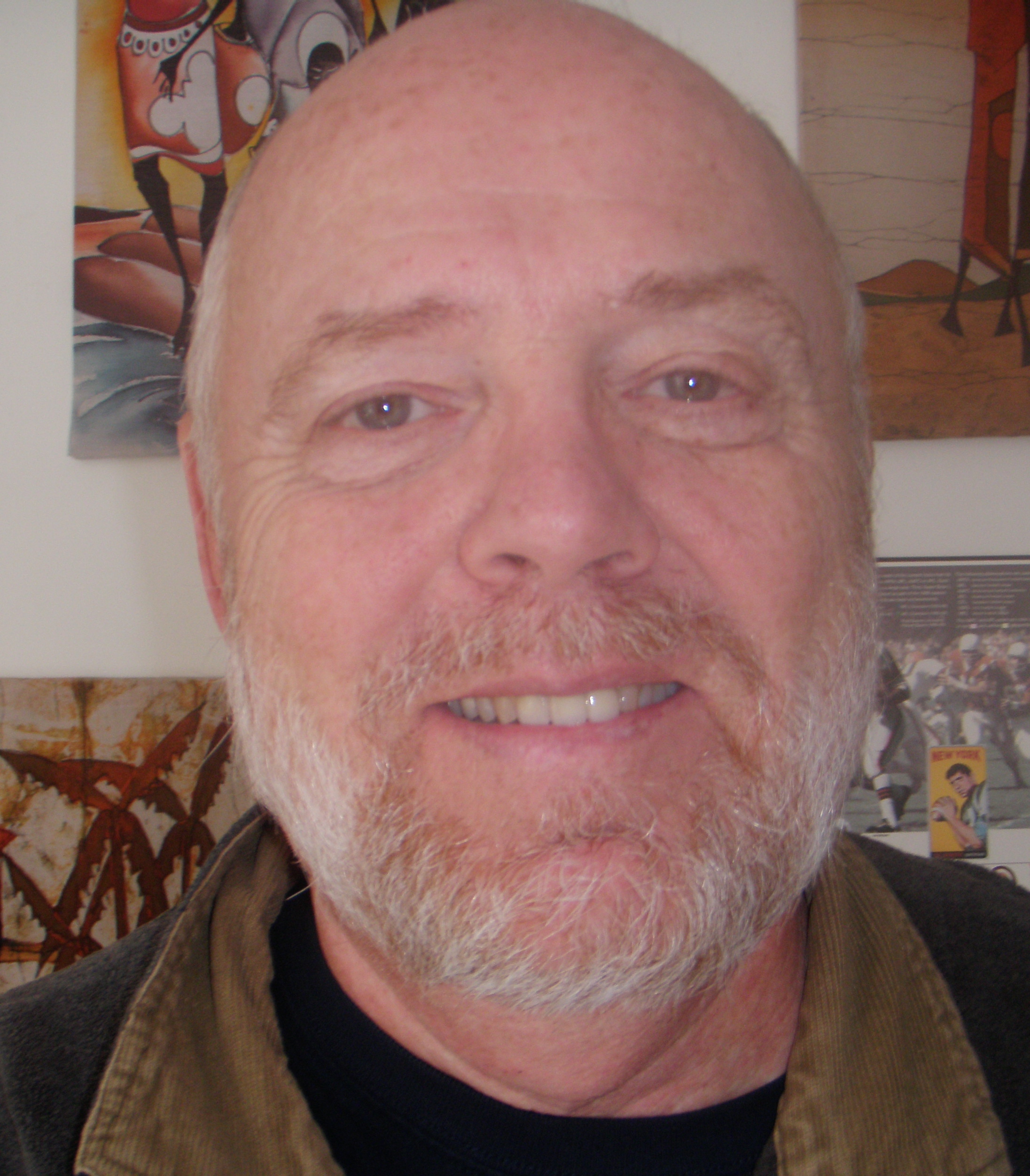
Dave Schweidenback – Founder and CEO
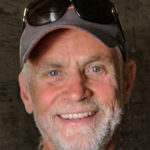
Gary Michel – VP, In-kind Operations
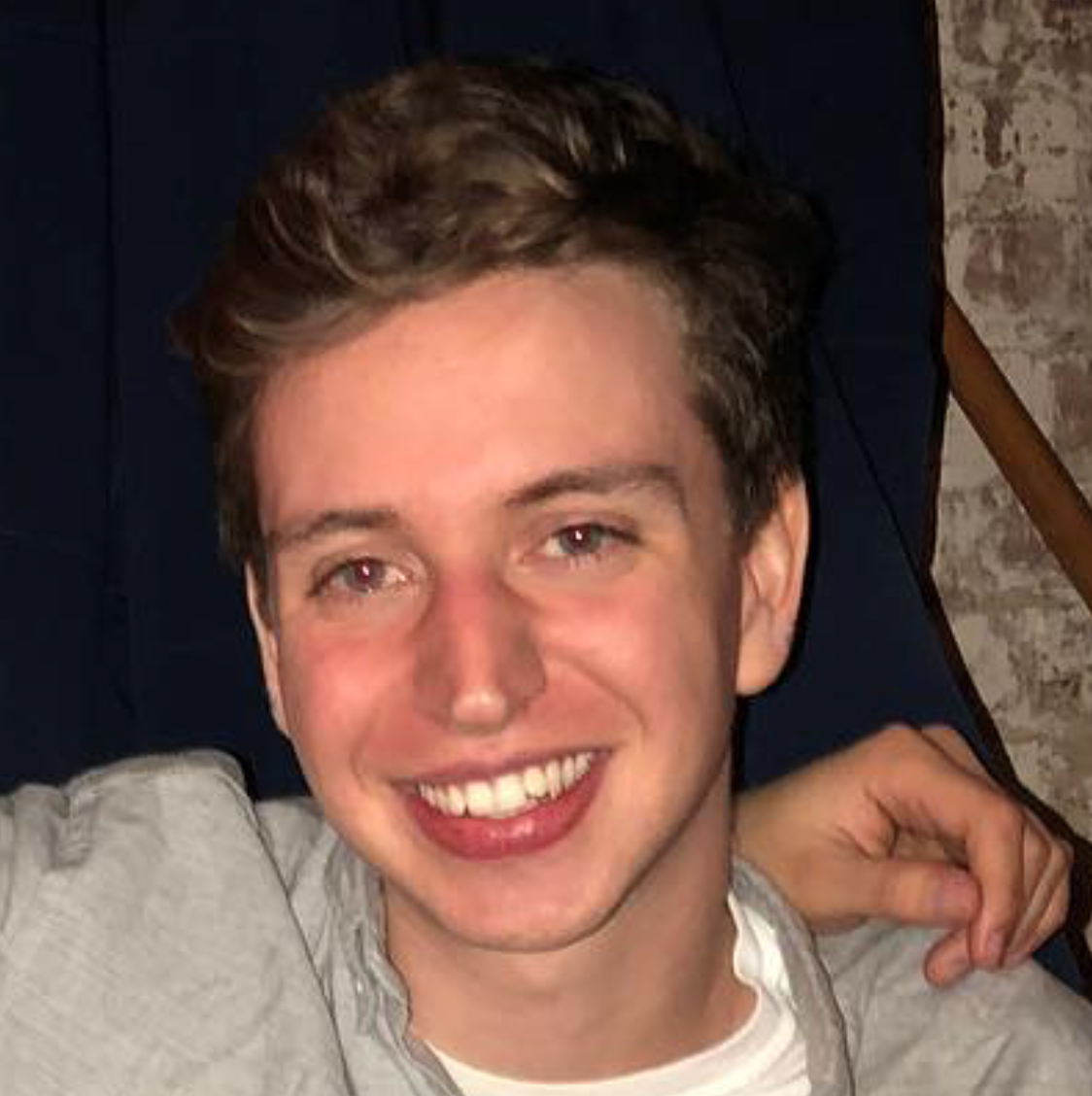
Alan Schultz – VP, Operations
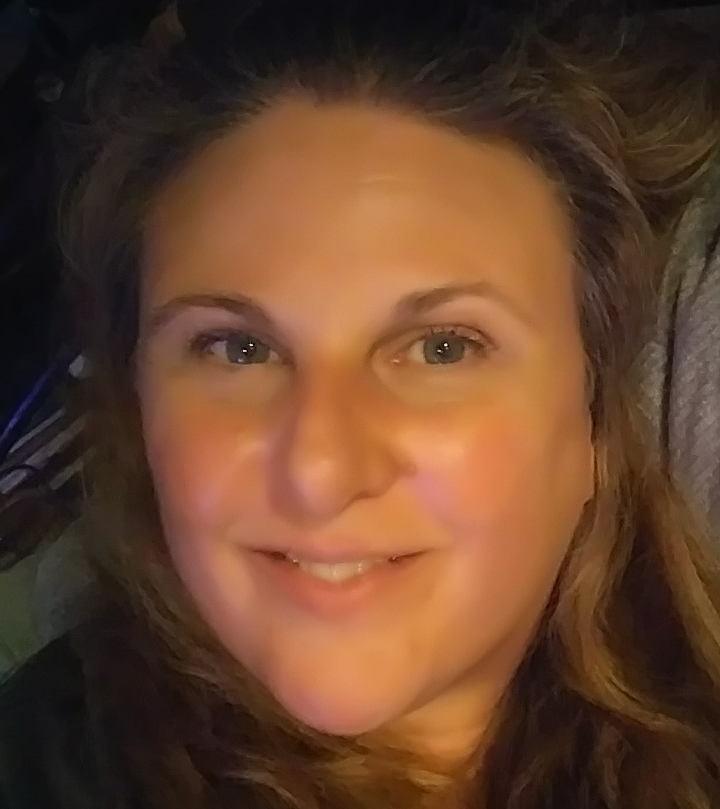
Lori Smith – Office Manager
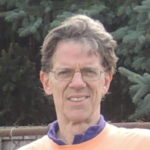
Michael Sabrio – Webmaster
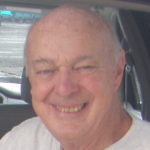
Dennis Smyth – Tinkerer
Mon 28 Jun 2021 07:43:13 AM EDT
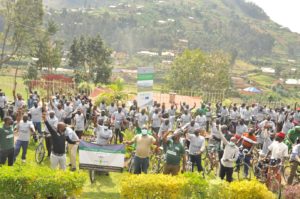 Rwanda Wildlife Conservation Association uses bikes to help protect and manage important wetland areas. Rugezi Marsh is a 6,735 hectare wetland protected by RAMSAR. We have a team of 50 community Marsh Rangers patrolling the wetland and watching out for activities that are not allowed and will destroy the marsh habitat, such as grazing livestock, cutting down trees in the buffer zone, hunting wildlife or cutting grass.
Rwanda Wildlife Conservation Association uses bikes to help protect and manage important wetland areas. Rugezi Marsh is a 6,735 hectare wetland protected by RAMSAR. We have a team of 50 community Marsh Rangers patrolling the wetland and watching out for activities that are not allowed and will destroy the marsh habitat, such as grazing livestock, cutting down trees in the buffer zone, hunting wildlife or cutting grass.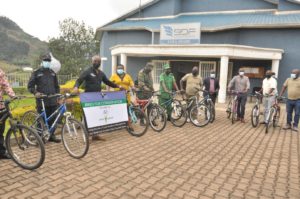 During the event, one leader made a speech about the significance of the bikes and how much they were appreciated by him and his colleagues. He described how the projects at Rugezi are life changing. He believes that the bike will help him respond quickly when Rangers call, especially during their patrols when they need support in resolving illegal activities. The bikes will also help in daily life, providing transportation to the market or to church. Having a bike will also save money that they might spend on public transport and save time getting where they need to go.
During the event, one leader made a speech about the significance of the bikes and how much they were appreciated by him and his colleagues. He described how the projects at Rugezi are life changing. He believes that the bike will help him respond quickly when Rangers call, especially during their patrols when they need support in resolving illegal activities. The bikes will also help in daily life, providing transportation to the market or to church. Having a bike will also save money that they might spend on public transport and save time getting where they need to go.
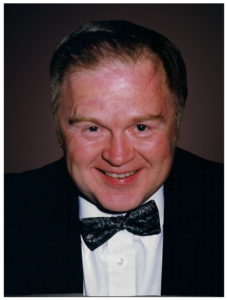


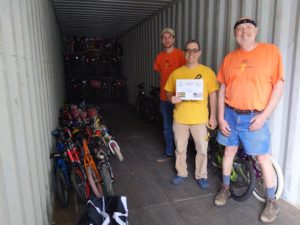
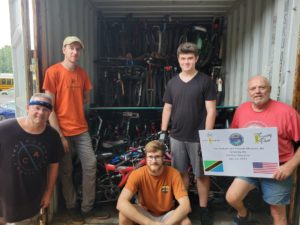
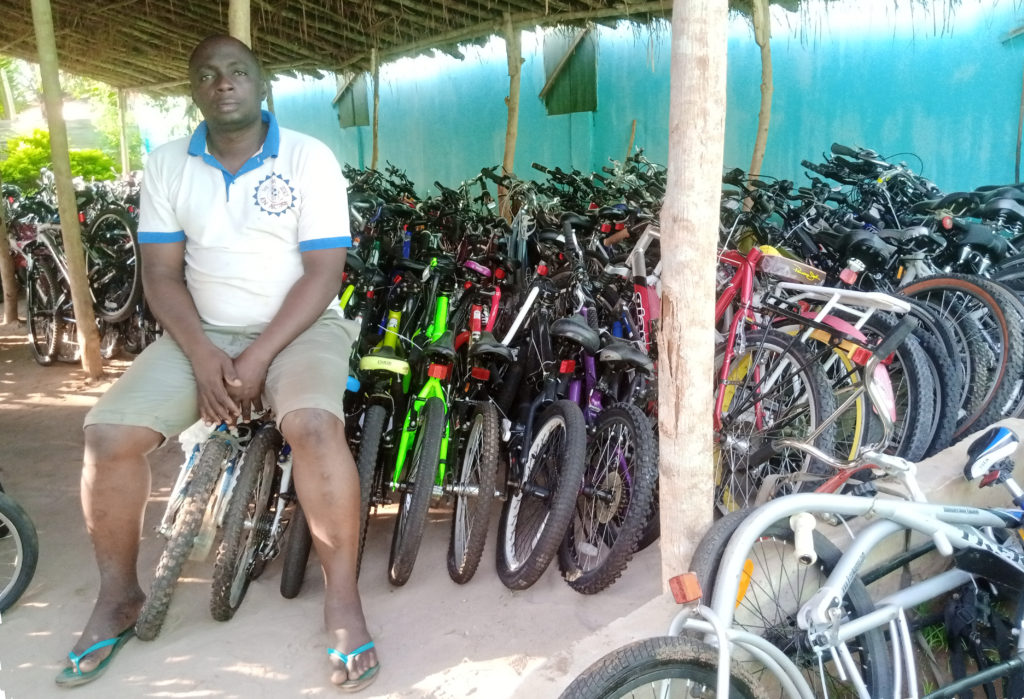































 Map
Map




